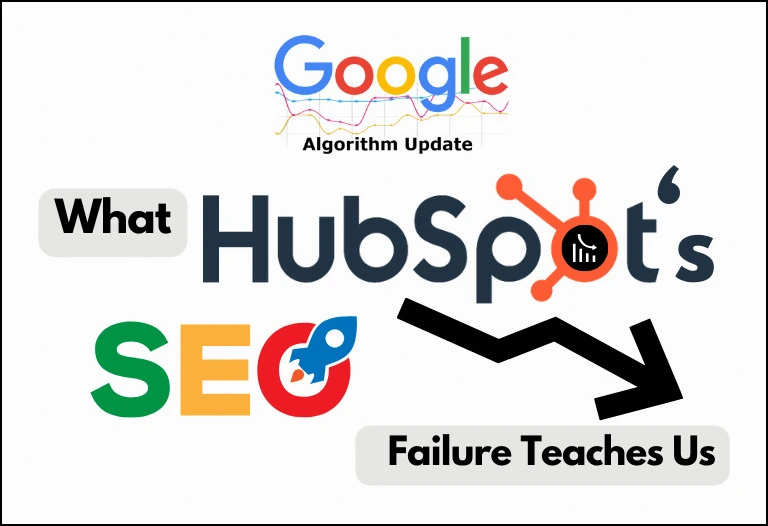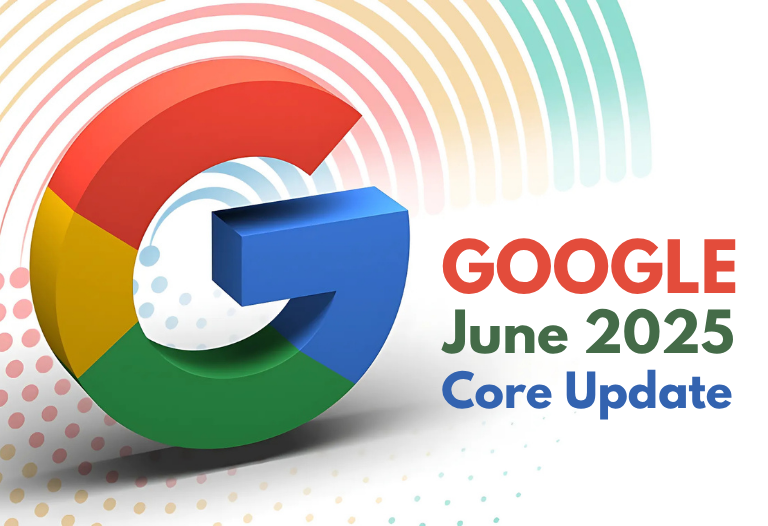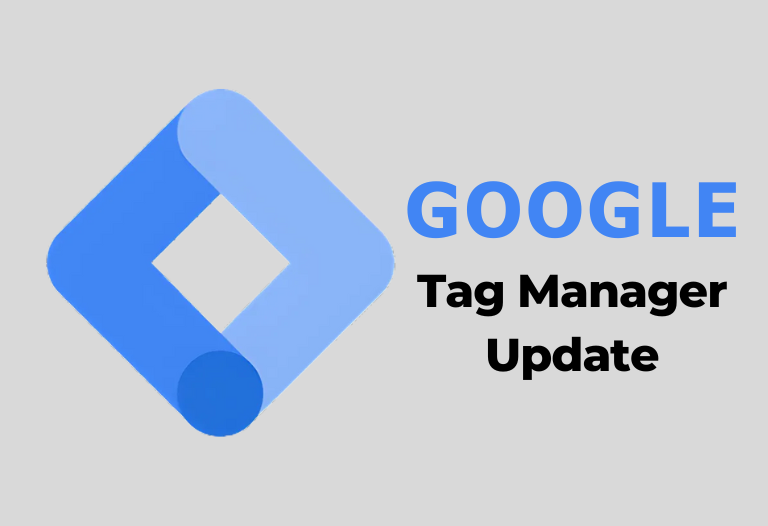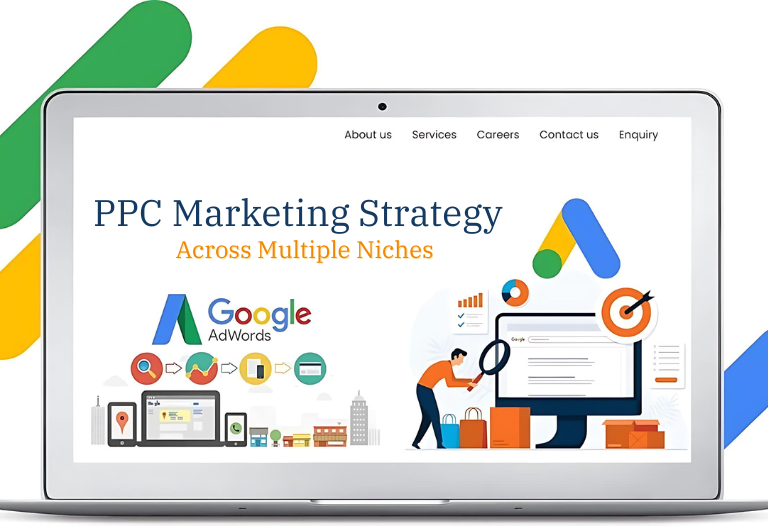
Google’s algorithm updates in 2024 have sent shockwaves across the SEO industry, causing major websites like HubSpot and even big SEO content platforms to experience significant traffic drops. The updates, which emphasize Google’s E-E-A-T (Experience, Expertise, Authoritativeness, and Trustworthiness) guidelines, have redefined the way content ranks in search results.
If your website is seeing a decline in rankings and organic traffic, it’s time to rethink your SEO strategy. Let us give you some insights on what caused Hubspot SEO to break down and show you how Primotech can help your brand stay ahead of Google’s ever-evolving guidelines.
The Impact of Google’s Algorithm Updates on Big Industry Players
The latest Google updates have changed the way search rankings are determined, hitting even the most well-established websites. Here’s how some big names have been affected:
HubSpot’s SEO Collapse

According to SEMrush data, HubSpot’s organic traffic plummeted from 13.5 million in November to 8.6 million in December 2024. The primary reason?
Google deprioritized sites that create content outside their core areas of expertise, affecting HubSpot’s broad-topic strategy. HubSpot’s approach of publishing large amounts of content on a wide variety of topics, sometimes beyond their core marketing and sales focus, likely led to dilution in perceived expertise.
What We Can Learn from HubSpot’s Drop:
- Google Algorithm Updates: The December 2024 core update and December 2024 spam update, along with the completion of the November 2024 core update, have prioritized unique, authoritative content within a website’s primary domain of expertise. HubSpot, known for its marketing tools, may have drifted too far from SaaS marketing solutions, causing Google
to devalue some of its content. - AI Overviews (AIOs) Impacting Click-Through Rates: Google’s AI-driven snippets (AIOs) provide instant answers, potentially overshadowing high-quality content. With Google Search Console not providing click data for AIOs, it’s unclear how much organic traffic is being lost to these instant answers, further challenging traditional SEO strategies.
- Content Length and Quality: Some SEOs argue that a large portion of HubSpot’s blog content consists of shorter articles. As search engines prioritize in-depth, long-form content, this might have contributed to the decline. Additionally, HubSpot’s prolific content production may have inadvertently led Google to categorize it more as a media company than a SaaS provider, impacting its visibility in search results meant for SaaS businesses.
Here’s an insight by Chris Long:
60-Second SEO: HubSpot’s Blog traffic has gotten absolutely demolished (-70% drop).
We analyzed their site and found that 53% of their pages had word counts of 2,000 words or less: pic.twitter.com/fxolMchbLH
— Chris Long (@gofishchris) January 23, 2025
Content-Length Debate: What Matters Most?
While the length of content is often debated, the real goal should be to provide the most effective and fastest solution to the user’s query.
Content length should depend on the nature of the topic:
- For “How-To” Blogs: These need to be detailed, insightful, and process-driven. Including step-by-step guides, walkthroughs, and personal insights enhances value and meets user intent.
- For Quick Answers: If a user’s query can be answered concisely in under 500 words, then it’s better to provide a clear and efficient response rather than unnecessarily stretching the content.
- Balancing Depth and Clarity: The key is not just length but relevance and depth—ensuring that the content is comprehensive without being bloated.
This approach aligns with Google’s goal of surfacing helpful, authoritative, and user-centric content rather than prioritizing word count alone.
More reports are coming in!
Several industry-leading platforms in marketing, business, and health niches saw similar ranking drops because they failed to align with the latest E-E-A-T criteria fully.
From Forbes to several other websites experienced significant impacts following Google’s December 2024 algorithm updates. Here are five notable examples:
1. MCQsQuiz.org: This educational platform, offering numerous quizzes and multiple-choice questions, reported a substantial decline in traffic after the December 2024 Spam Update: support.google.com
2. Various Websites Discussed on SEO Forums: Multiple site owners have shared experiences of significant traffic drops in SEO communities, attributing these declines to the December 2024 Spam Update. Learn more here: seroundtable.com
3. Sites Impacted by Reputation Abuse Policy Update: As of May 7th, 2024, numerous websites, including those utilizing subdomains and subfolders rented out to third parties, were affected by Google’s reputation abuse policy update. More details here: stanventures.com
4. Websites in the Health Niche: Analysis indicates that the health sector experienced notable fluctuations in search engine results pages (SERPs) during the December 2024 updates, leading to traffic volatility for several sites. Find out more here: impressiondigital.com
5. European Price Comparison Websites: Over 20 European price comparison platforms, such as Idealo, billiger.de, Le Guide, PriceRunner, Kelkoo, kieskeurig.nl, and trovaprezzi.it. In retaliation, they criticized Google’s search result changes, claiming non-compliance with the Digital Markets Act (DMA). They have urged EU regulators to impose antitrust charges against Google.
Why Did These Sites Lose Traffic? Let’s break it down!
Google’s Helpful Content Update (HCU) and Core Algorithm Updates in 2024 prioritize content that demonstrates genuine expertise and firsthand experience.
Here’s what went wrong for these industry giants:
- Too Broad Content Strategy – Sites like HubSpot covered an extensive range of topics, some of which lacked deep expertise.
- Lack of Firsthand Experience – Google is now favoring content created by individuals with direct industry experience over generic, AI-generated, or outsourced content.
- Lower Perceived Trustworthiness – Websites with weaker author credibility and lack of external trust signals (e.g., authoritative backlinks) suffered the most.
- Failure to Meet Google’s New Content Guidelines – Many of these sites relied on traditional SEO tactics instead of real value-driven content.
The lesson? If your content isn’t expert-driven, authoritative, and valuable, you’re at risk of losing rankings.
How Can You Stay Ahead? Follow Google’s E-E-A-T Guidelines
With Google tightening its quality control, businesses must focus on creating authentic, user-focused, and experience-rich content.
Here’s how you can adapt:
- Invest in Authoritative Content – Ensure that subject matter experts (SMEs) are involved in content creation.
- Demonstrate Real-World Experience – Incorporate case studies, real-life examples, and expert opinions.
- Improve Website Trust Signals – Get backlinks from credible sources and ensure your brand has strong online authority.
- Optimize for User Intent – Understand what your audience is searching for and provide clear, insightful answers.
- Avoid Thin Content – Create well-researched, in-depth articles rather than short, low-value blog posts.
How Primotech Helps Brands Thrive Despite Google’s Updates
At Primotech, we specialize in helping businesses navigate Google’s ever-evolving algorithms. Our expert SEO strategies ensure that your content aligns with Google’s latest guidelines while still driving engagement, conversions, and brand authority.
Here’s what we do:
- Expert-Driven Content Creation – Our pool of writers has extensive industry expertise and has worked with industry professionals to craft content that showcases real expertise.
- E-E-A-T Optimization – We enhance your website’s trustworthiness with strategic SEO techniques, authoritative linking, and improved author profiles.
- AI-Powered & Human-Optimized SEO – Our approach blends AI-driven insights with human creativity to produce content that ranks well and engages users.
- Comprehensive Content Audits – We analyze your existing content and provide actionable recommendations to improve your rankings.
- Sustainable Growth Strategies – We build long-term strategies that help brands thrive through future Google updates rather than relying on short-term SEO tactics.
Google’s algorithm updates are constantly reshaping the SEO landscape, making it increasingly difficult for businesses to maintain their rankings. As the dominant force in search, Google has the power to dictate visibility, leaving brands vulnerable to sudden shifts. However, with a strategic, adaptable approach, businesses can not only recover but also thrive in this ever-evolving digital ecosystem.
If your site has been affected by the latest updates or if you want to future-proof your SEO, we can help! Contact Primotech today, and let’s create an SEO strategy that works for your brand!




 February 3, 2025
February 3, 2025









